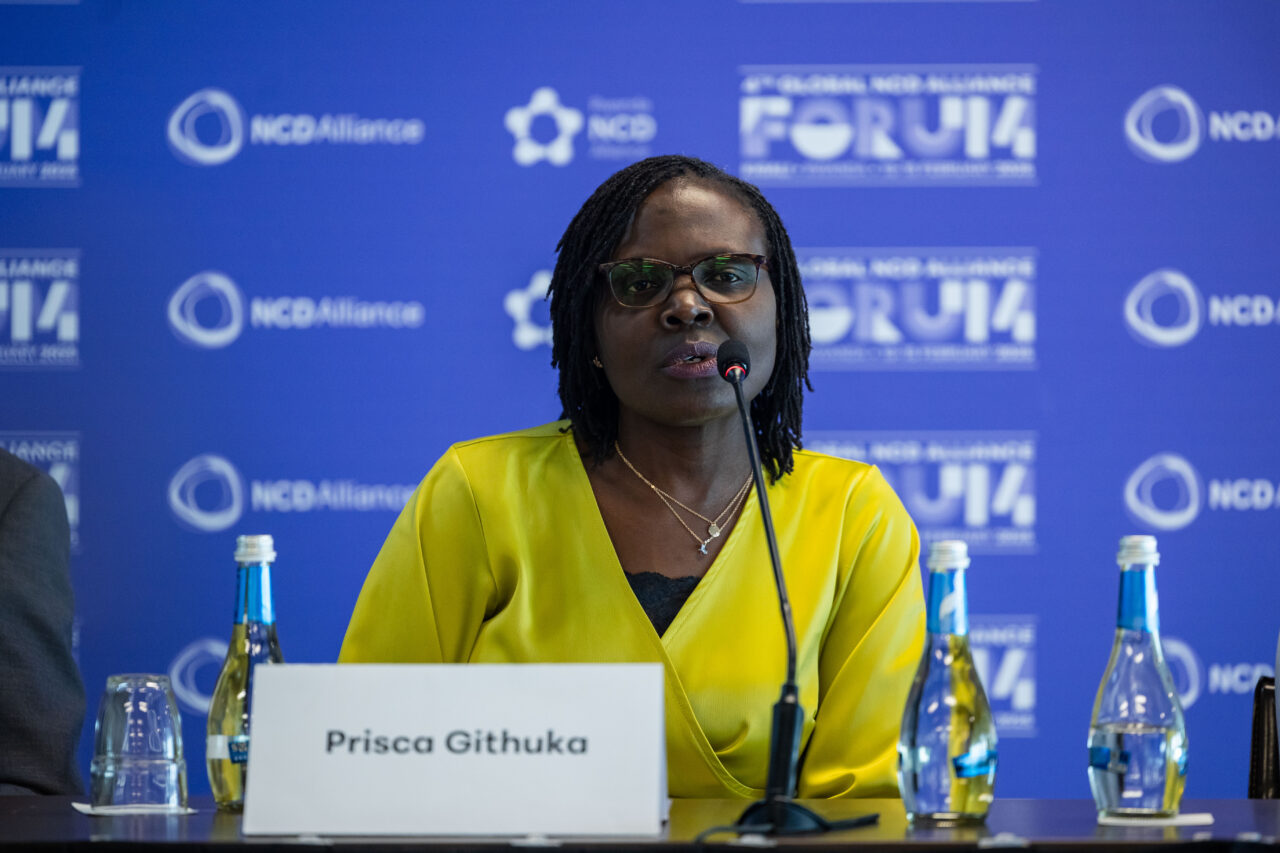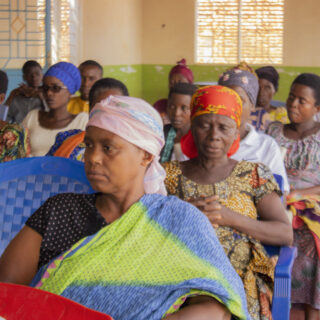
The Kigali Convention Centre buzzed with the language of global health: targets, funding, strategies. But amidst the discussions at the 4th Global NCD Alliance Forum, Prisca Githuka’s voice, soft yet resolute, cut through the noise. She didn’t speak of statistics; she spoke of survival, of loss, and of a fight that extended far beyond her own body.
Eleven years ago, the world shifted beneath Prisca’s feet. The diagnosis: triple-positive breast cancer. The words themselves felt like a blow. Then came the reality of treatment: transfusions every month, the relentless fatigue of plastic anemia, the invasive procedures, the ever-present fear. She spoke of it matter-of-factly, the medical terms now part of her everyday vocabulary. Surgery, the searing heat of radiotherapy, the toxic cocktail of chemotherapy – 30 rounds in total. And then, the daily struggle, the constant vigilance, the medications that cost five dollars a day, a sum that weighs heavily on families in Kenya.
But Prisca’s story isn’t confined to the sterile walls of hospitals. It spills over into the lives of those she loves most. Her voice faltered as she spoke of her sister. Stroke, cellulitis, the agonizing amputation. And then, the words no one wants to say: “She lost the battle.” The grief was raw, a testament to the devastating impact of NCDs, not just on individuals, but on entire families. In that moment, the forum’s focus on global health targets felt distant, almost abstract. Prisca’s story brought the reality crashing home: NCDs aren’t just diseases; they are family tragedies unfolding in slow motion.
Prisca’s experience isn’t unique. It reflects the stark health inequities that plague many African nations. She was fortunate, she acknowledged, to have insurance through her job that covered some of her initial treatment. But the ongoing costs, the constant need for medication, the ever-present threat of recurrence – these are burdens she carries every day. And behind her words, unspoken but deeply felt, was the question: what about those who don’t have insurance? What about those who can’t afford the five dollars a day? What about those who live in remote villages where access to healthcare is a distant dream?
Prisca’s story isn’t just about cancer; it’s about family, resilience, and the crushing weight of a disease that ripples through generations. She spoke not just for herself, but for countless others facing similar struggles. “I want to be the voice for the people out there,” she declared. Her words echoed through the conference hall, a reminder that the fight against NCDs isn’t just about research and funding; it’s about human lives, about families clinging to hope in the face of overwhelming odds. It’s about ensuring that access to life-saving medications and quality care isn’t a privilege, but a fundamental human right. It’s about turning the tide against a disease that steals not just lives, but also the bonds that hold families together.



